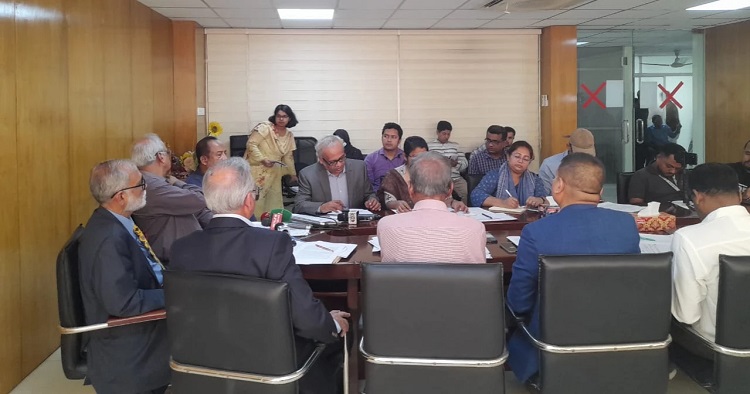Legal protection, recognition of informal sector workers to get priority: Commission


এখানে হাইলাইট অংশ টুকু দিন (এই লেখা ফেলে দিন আগে )
“New labour sectors are being created in the labour market. A large number of people are working in sectors such as IT, transportation, food supply without any kind of legal protection," he said while sharing the plan at a press briefing organised by the Labour Reform Commission at the Department of Labour in the capital.
This briefing discussed the outcomes of the first meeting of the commission and shared key updates on labour reform initiatives.
Syed Sultan Uddin, also executive director of Bangladesh Institute of Labour Studies (BILS), said over two million labourers are joining the labour market every year and competition for jobs has become extreme.
"Capitalising this situation, widespread labour exploitation and abuses are taking place. The existing labour laws in the country are applicable to only a small portion of the total workers," he said.
Stating that there is no protection framework for most of the remaining workers, Syed Sultan Uddin said a significant number of workers are going abroad and are being forced to work in dangerous and unhealthy conditions for lower wages due to the lack of suitable employment opportunities in the country.
The bodies of Bangladeshi labourers are brought home from abroad every day, he said.
There is no alternative to responsible trade union activities to build sound industrial relations and it is expected that workers and employers will create a proper productive and safe working environment through collective bargaining, he said.
The commission chief also hinted that a culture of considering each other as opponents has been created here unfortunately although not in all areas, "If the entire nation cannot come out of it, it will have to pay the price," he said.
"A significant number of workers are engaged in the industrial sector. Although industrial workers have legal recognition as 'workers', the majority of workers in the informal sector do not have legal recognition," he added.
He also said though working people at home and abroad are the main driving force of the country's economy, they have not yet been able to receive the status expected from the state and they are also living in a socially disrespectful state.
"The saddest thing is that looking down on workers has become a part of our culture. Domestic workers face abuse in every house, the constant death of construction workers, shipwrecks or accidents in the transportation sector reveal the neglectful attitude of policymakers and society towards workers," he said.
The commission chief promised that they want to play a role in protecting the rights and welfare of all workers in the formal and informal sectors of the country and all migrant workers so that in the future they are considered as 'social assets' and can live a dignified life with their families.
